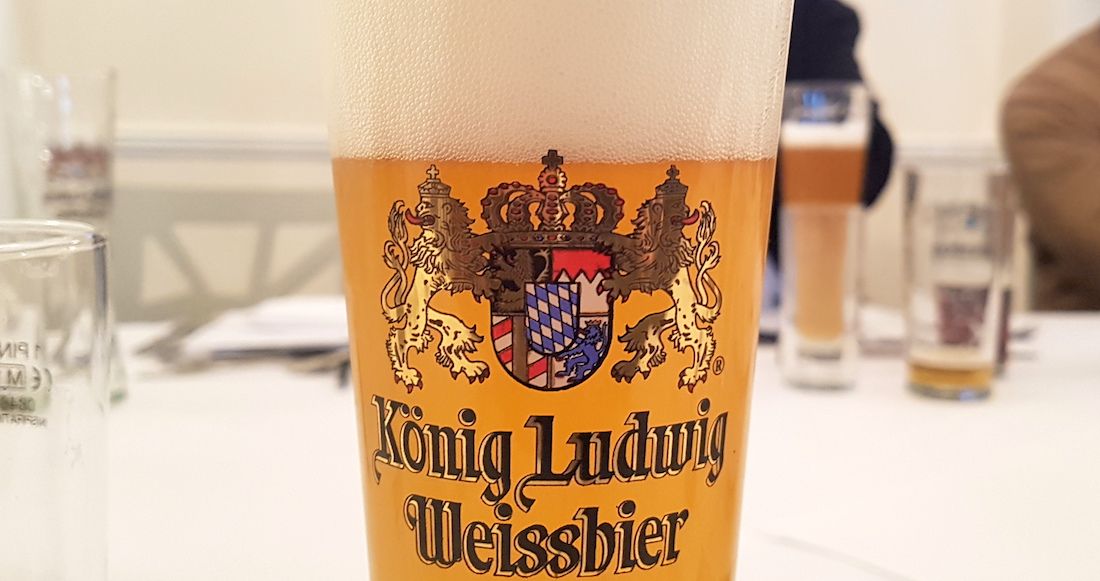
Recently I caught up with Prince Luitpold of Bavaria on his visit to London to attend Royal Windsor Racecourse tribute day for the Oktoberfest Beer Festival. The Prince lives in a castle with the Kaltenberg brewery on site and describes himself and his family as “discriminating consumers”.
“Our family had breweries since 1260 for more than 750 years. Beer in bavaria has always been part of day to day life and our family has influenced the brewing industry for the last 700 years. We endorsed the Bavarian purity law. We had the monopoly on weissbier production for more than 200 years and our family has been very much into beer as first of all discriminating consumers themselves, plus looking into details in production because brewing of her was the biggest income to the royal family in Bavaria in the 17th and 18th century.
It has always been very important from a political, from a financial and also from a pleasure point.”
The Kaltenberg range of beers:
Classification and purity of the beer name and product are of major importance and his family have pioneered many
“We have a classic Bavarian styles of bees and range of beers. On the bottle fermented end, classic lager styles, we have a Kaltenberg lager, we have ` kaltenberg unfiltered lager, we have strong beers, we have dark lagers… we have very strong dark lager!”
“On the top fermented beers Bavaria have Weissbier. We have a weissbier in many different varieties. We have a standard unfiltered weissbier, light coloured weissbier. We were the first bavarian brewery to make a dark weissbier. We have version which is alcohol free and we have a light version. Plus we have a double bock weissbier that is about 9.5% ABV.”
“We have a wide range but some of these products are seasonal. Like the time before Easter when people are not allowed to eat as much so we make double strong beers to compensate… and things like that,” He laughs: “that’s Bavarian tradition!”
Where do Kaltenberg export to?
“We export mainly within our close neighbouring countries. In other countries we decided to produce locally. This is because I believe beer should be fresh. The fresher the better. It doesn’t get better by transport and age.
“So if yo are talking about countries further away, I’d rather talk about exporting our yeast, our recipes, our hops and brewmasters and teach other breweries to produce our beer under license. We then take a very close technical control, with regular visits and quality control and comparing to our own beer at home. We have this now in 15 nations around the world including Indonesia, India, and Mongolia.
“I do not think it is going to be socially acceptable to ship a product with a lot of water content throughout the world. Just because of the energy and CO2 balance.”
When do Bavarian’s drink beer?
“We have beer at any occasion as an option. There is no state reception where people are only served Champagne or white wine. You would always have the opportunity to have a beer! The same applies to a wedding or whatever the occasion is.
“Nothing against a decent wine; a good white wine, red wine or Champagne… but it is about giving them a choice. Even at a wedding party we would have people who would prefer a glass of beer to a glass of wine. If this is so then they should have the choice.
“It is a case of social acceptability, not flavour. In many cultures it is socially unacceptable to have a beer at a state reception. It has to be a Champagne. The French did a better marketing job!
“I think it would be totally unacceptable not to have a beer, as an option!”
Perhaps having a brewery in one’s own castle makes it easier to ensure that beer is always on the menu at state receptions. The Queen Elizabeth is now producing her own Champagne style sparkling wine on palace land and is also very publicly serving English sparkling wine at state events. It might be an entertaining site to see foreign heads of state visiting Britain and enjoying a glass of beer with “Her Maj’”!
The Queen maybe venturing into British bubbly but when I asked the UK’s most prestigious wedding planner, he said “For our clients it has to be one of the top Champagne houses. Maybe a beer later in the evening but not before or during the dinner.” And for English wine: “Our consultant sommelier tells us that people aren’t asking for it yet. If it is good then people will eventually be serving it!”